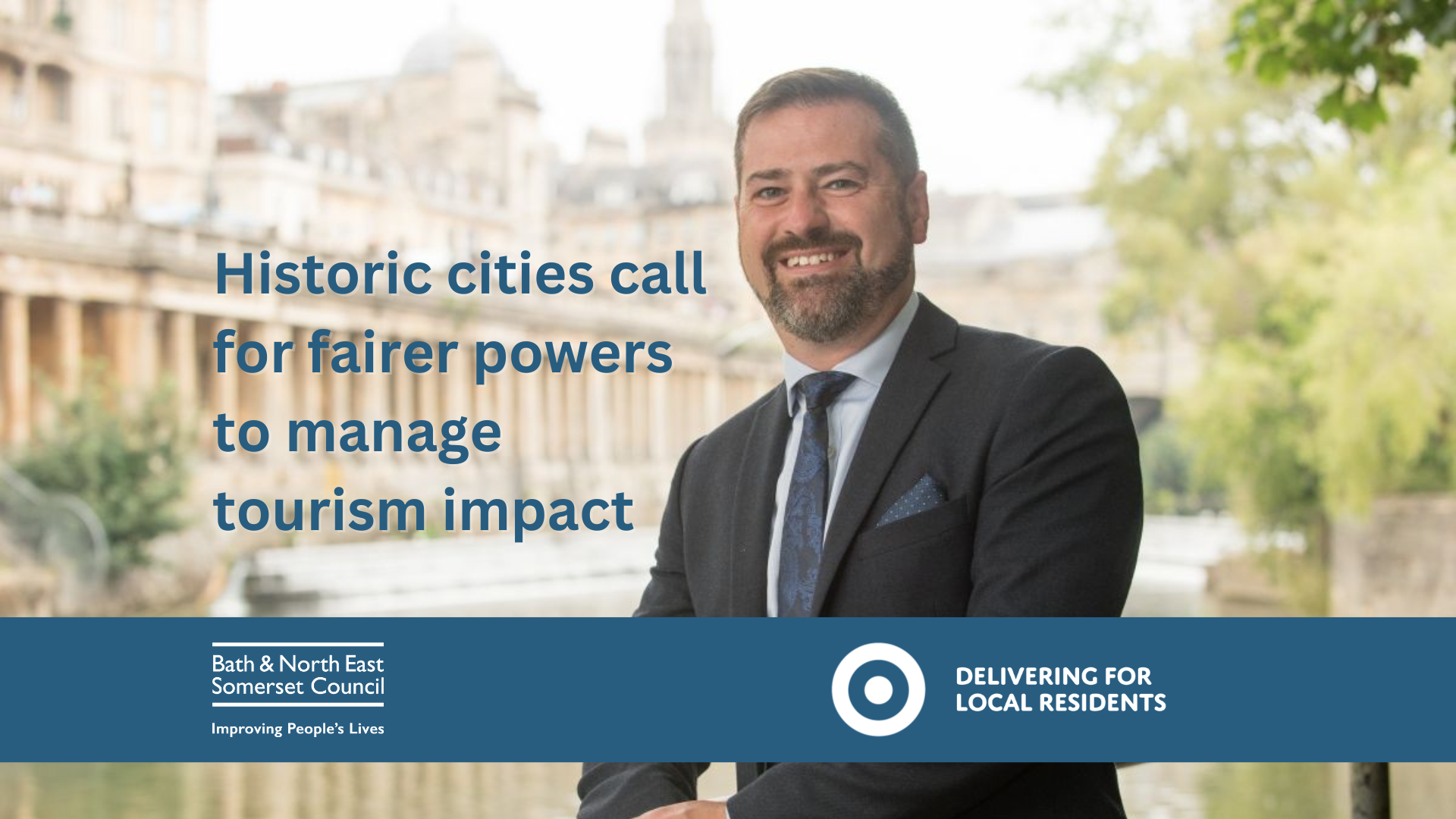Date published: 2025-07-15 | Category: Bath, Leisure, Tourism and Heritage

Council leaders representing two of England’s key visitor destinations have jointly written to Angela Rayner, urging the Government to convene a roundtable on support for sustainable tourism across heritage cities.
In the letter, Bath & North East Somerset Council and Cambridge City Council highlight the growing pressures faced by destination cities. These include strains on local infrastructure such as roads and transport and increased demands on services like waste management.
The councils are calling for a roundtable with Government to explore a range of options to support sustainable tourism, including the introduction of a modest visitor levy - similar to those seen across Europe- with revenue generated used to benefit both residents and visitors.
Councillor Kevin Guy, Leader of Bath & North East Somerset Council, said: “We are proud of the huge role we play in supporting the national visitor economy, but we need a fairer system—one that recognises the costs as well as the benefits. This is about making tourism work for everyone. We want to sustain the quality of the visitor experience while safeguarding the wellbeing of our communities. That means giving councils the tools to manage tourism in a way that reflects local needs and priorities. Having the sort of powers now being introduced in Scotland and Wales would allow us to reinvest directly into the services and infrastructure that make these visits possible. Any levy should apply fairly across all types of accommodation, including short-term lets such as Airbnb.”
Councillor Cameron Holloway, Leader of Cambridge City Council, said: "As a UK top 10 destination for international visitors, we recognise the value that tourism brings to the local economy and local people. We are proud that people want to come from across the world to see and experience Cambridge, and we want to facilitate that in a way that works for local people and for visitors. High numbers of tourists ebbing and flowing through our relatively small medieval city centre can have a serious impact on local people, and can detract from the visitor experience. If tourism in historic cities like ours is to remain sustainable and internationally competitive, we need to be given the means to manage the flow of visitors and to address some of the negative impacts of tourism on local residents, public realm, and infrastructure. Scotland and Wales have these powers now, as do many cities in Europe. We were disappointed not to see anything from Government in the Devolution Bill to provide similar powers in England, as we want Cambridge to have the same."
This joint call forms part of a wider effort to ensure the benefits of tourism are more equitably shared and other historic visitor destinations will also now be invited to join the discussions.
You can read the letter online.
ENDS
